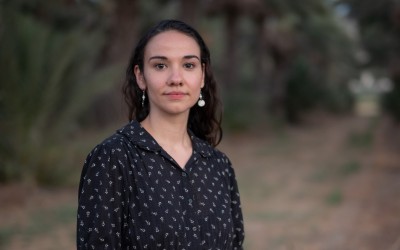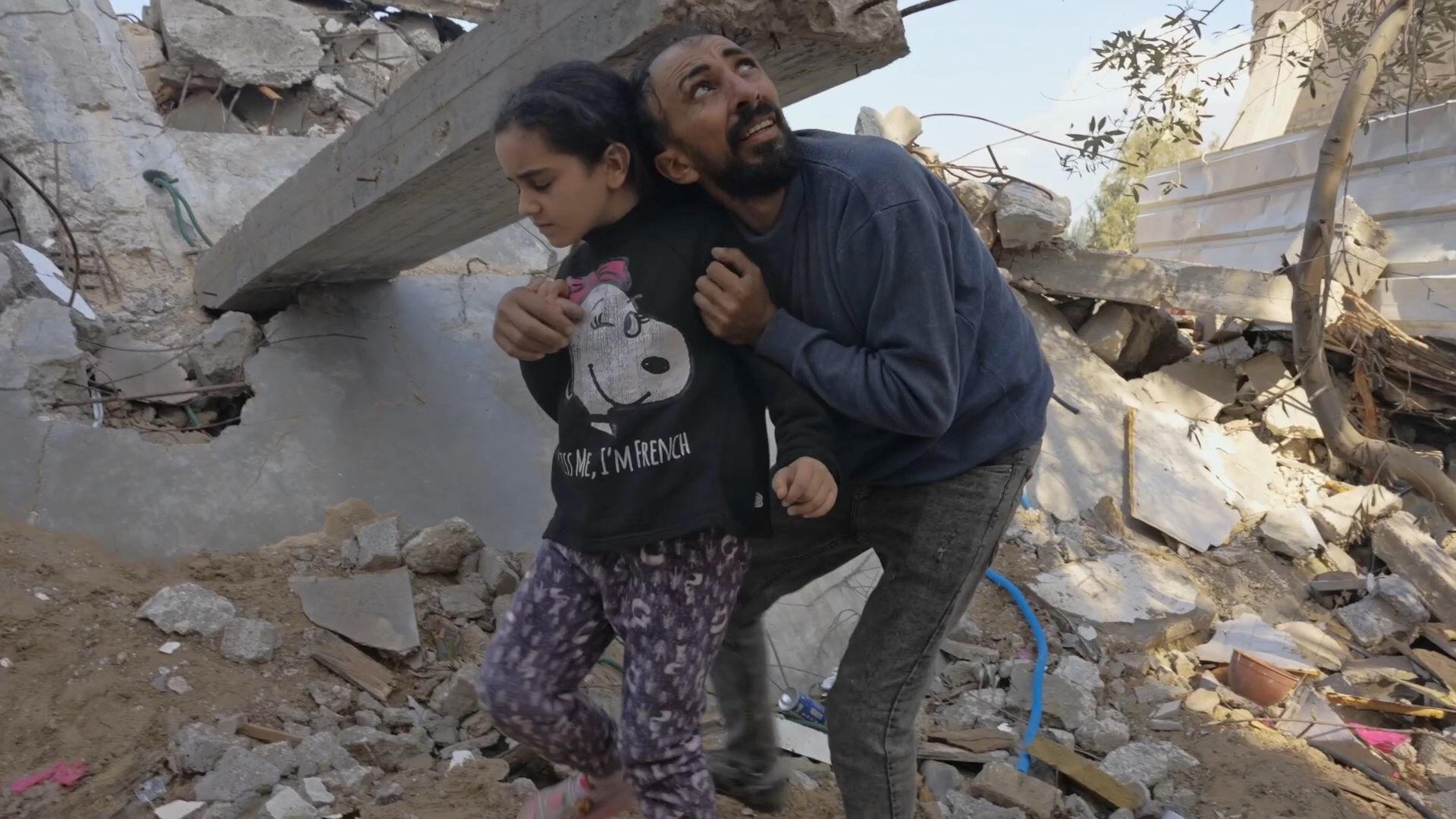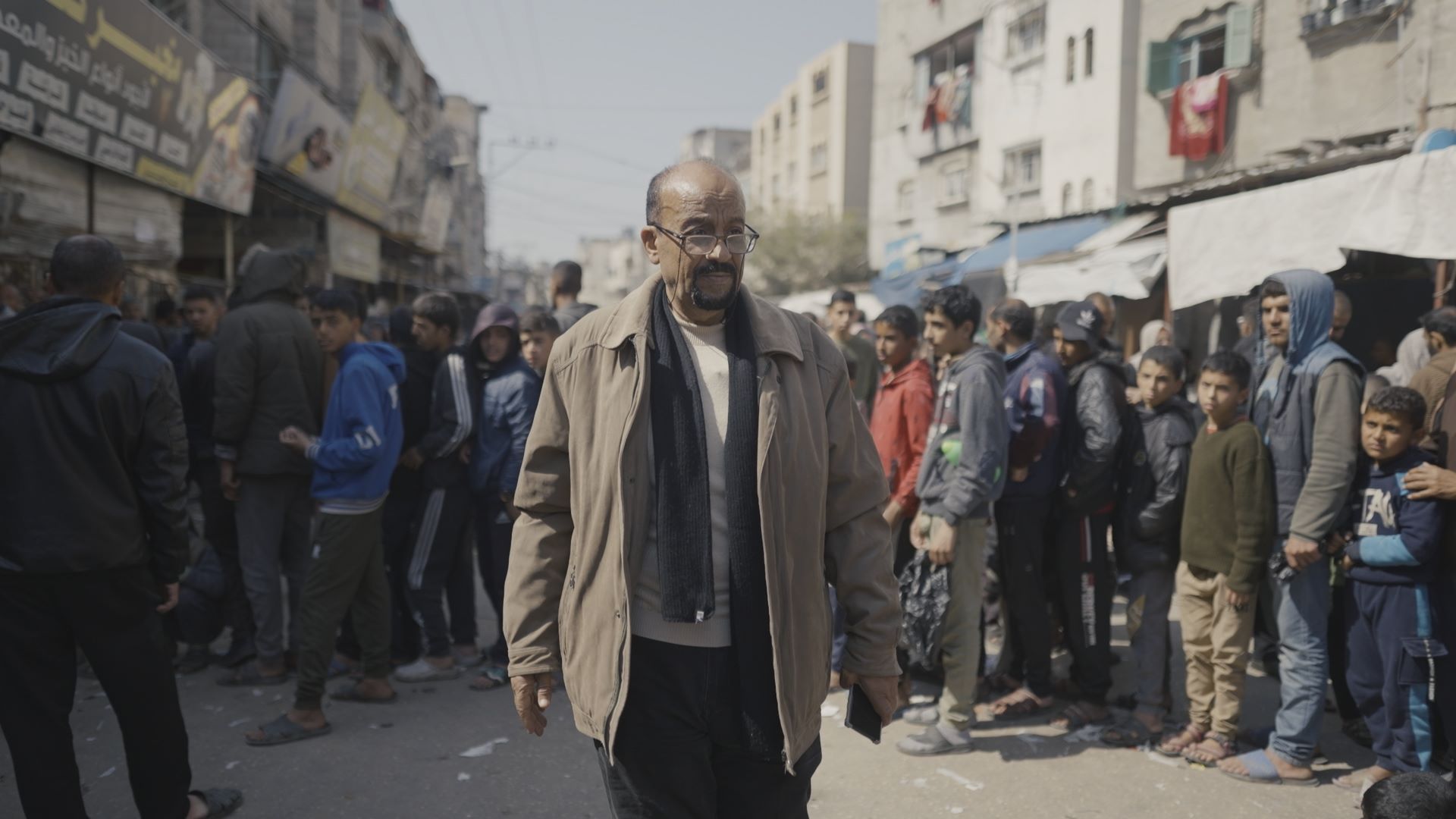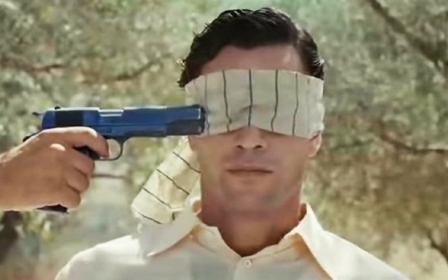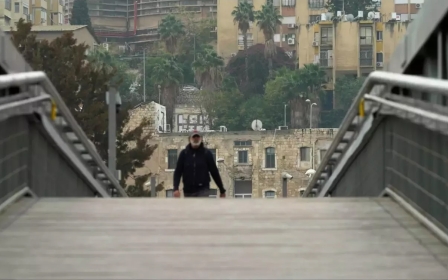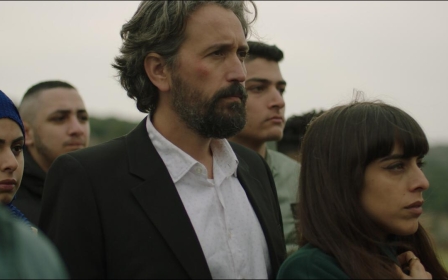Made in Gaza: From Ground Zero gives voice to filmmakers trapped in war zone
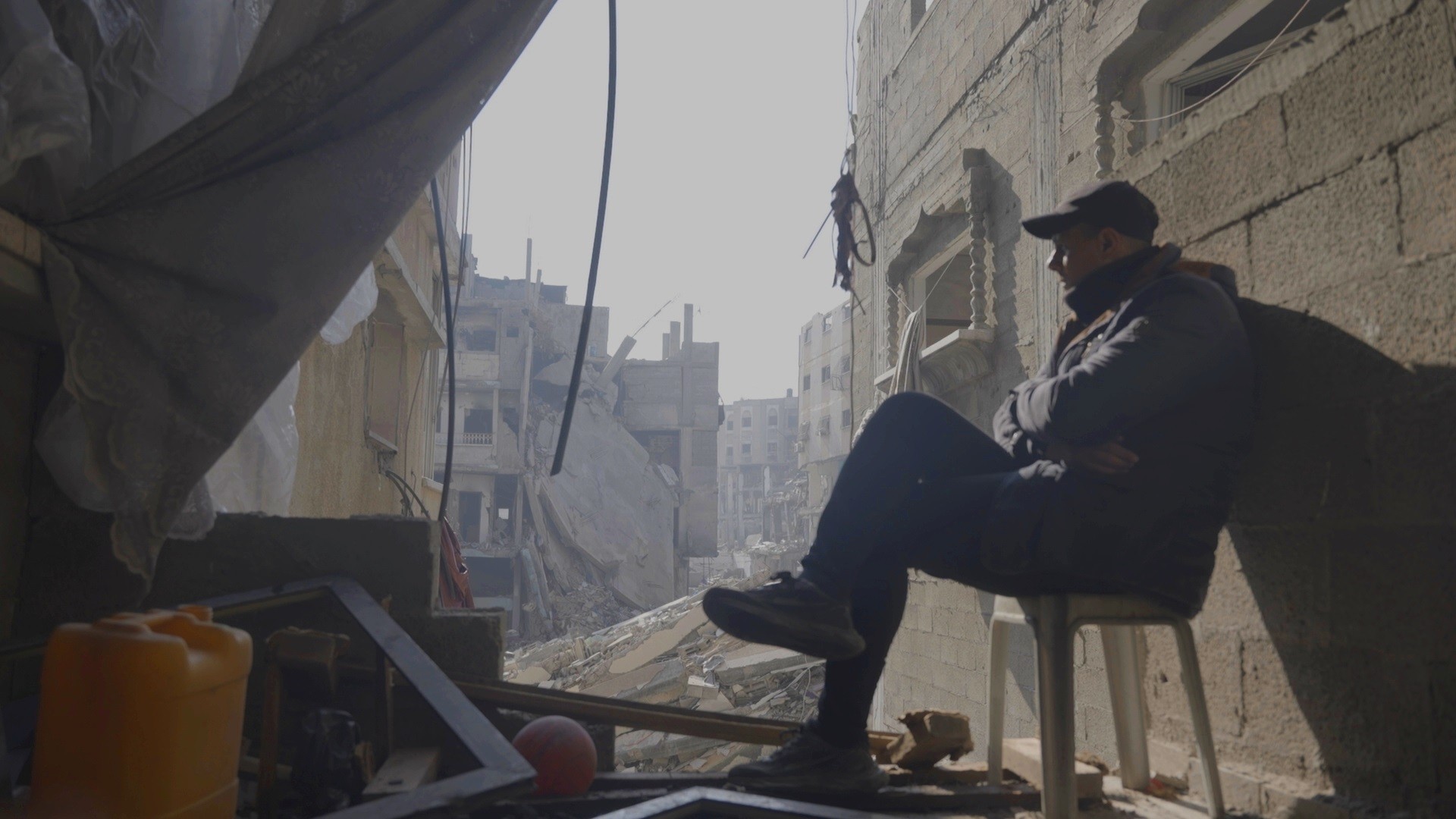
It is hard to imagine a more challenging environment for shooting a film than the devastated and besieged Gaza Strip in 2024. But that is the setting for a groundbreaking new anthology by Palestinian filmmakers.
A collection of 22 short films by artists on the ground in Gaza, From Ground Zero is a landmark in Palestinian filmmaking, serving as a testament to life under Israel's relentless military campaign in the besieged territory, which began in October 2023.
Curated by renowned Palestinian director, Rashid Mashawari, the collection has had a successful global tour and was selected as the launch title for this year’s Bristol Palestine Film Festival, opening it on 30 November.
Mashawari’s 1996 film Haifa was the first Palestinian production to be officially selected at the Cannes International Film Festival.
He then founded The Cinema Production and Distribution Centre in Ramallah, dedicating years to organising mobile cinemas and workshops.
New MEE newsletter: Jerusalem Dispatch
Sign up to get the latest insights and analysis on Israel-Palestine, alongside Turkey Unpacked and other MEE newsletters
“This time I am not going to make a film,” says Mashawari, speaking to Middle East Eye about his new collection at the festival in Bristol.
“This time, I'm going to give the chance to the filmmakers who are in Gaza - women and men - to do their own films; they are the story.”
In November 2023, a month into Israel’s war on Gaza, he established the Mashawari Fund to support artists and crew in the besieged strip.
“Everyone can see - it’s bloody. A real genocide. As a Gazan, a filmmaker and as a human being, I asked what I can do. The answer came from cinema.”
'No distance'
Mashawari says he wanted to focus on “untold, personal stories” from people living under Israeli siege and bombardment.
For some of the directors, it was their first film - but all of them were connected to art, music or storytelling in some way before the project started.
Mashawari created a team of advisors on the ground to find new voices and collaborators, as well as involving filmmakers he knew personally.
Many of the shorts are in documentary and interview form, whilst others play with genre and composition.
'We named it 'From Ground Zero' because there is no distance between the director and the action'
- Rashid Mashawari, Palestinian filmmaker
“We have experimental films, animation films and we have video art,” Mashawari explains.
“The filmmakers all think and feel differently, everybody has a chance not only to make a film but to express themselves.
“They are trying to save their life, find food and trying to be a refugee from one place to another. This is why we named it 'From Ground Zero' because there is no distance between the director and the action.”
The use of art and imagery to express one’s reality while enduring hardship has long been a way to deal with trauma.
For example, Soft Skin by Khamis Mashawari follows an animation workshop with 14 children who learn how to create stop-motion films using colourful, cut-out drawings.
Awakening by Mahdi Kreirah features striking puppets inventively constructed using empty cans of tinned aid food.
The execution and completion of From Ground Zero is a huge achievement given the obvious obstacles and challenges.
“It was not easy - it was so complicated to get the material out of Gaza. Our main problem was electricity, because once you don't have electricity, you cannot charge mobiles, laptops or the batteries of cameras.
“Sometimes people were risking their lives to go with a hard disk from the middle of Gaza, from Deir al-Balah to Rafah, where the border with Egypt is.”
Near the border, some crew members were able to use Egyptian SIM cards to upload and send their material.
Others found a resourceful solution to generate their own electricity using solar panels.
At one point during the five months of filming, Mashawari's team found a location next to Al Aqsa Hospital where they were able to successfully access the internet.
They set up a tent and designated it the From Ground Zero production tent.
“It was very risky,” Mashawari said about a particularly shocking moment,
“I was lucky when they bombed all the area, including our tent, my people were not there. They left at 3 o'clock in the morning, they bombed at 6.15am.”
'Is he still alive?'
Talking to Mashawari, it's impossible not to notice the huge weight of responsibility he felt working with filmmakers who are in such physically vulnerable and dangerous conditions.
Sometimes a week would pass without receiving contact with any of his team on the ground.

He would reach out to journalists or anyone with a connection. “Is he still alive? Did he move? What happened to him?”
Those were questions he would ask before continuing with the project, “to be sure that people are fine".
Of course, what it means to be “fine” has taken on a new meaning in Gaza. Diana al-Shinawy from the film Offerings says, “I do not know when this war will end, we will all need therapy to endure the pain.”
“It's been very hard for me as a Gazan,” Mashawari says, “but it's a decision to also help myself, by doing something, by sharing, by participating. It saves me.”
The quick turnaround from shooting to finishing the film was remarkable by industry standards.
The artists on the ground filmed their shorts from January to June 2024 and by July, the feature-length version premiered at the Amman International Film Festival.
Mashawari also previously screened shorter sections in May at a special event he organised himself in Cannes to raise awareness about the project and the ongoing persecution of his people.
Some of the films were edited in Gaza as a rough cut and the final cut and tweaks were implemented by his team in France.
“We had a lot of sound problems because in Gaza you have 24-hour drones - ‘zanana’ all day.”
The Arabic term "zanana" is used by Palestinians in the Gaza Strip to refer to the buzzing sound produced by Israeli drones.
'We had a lot of sound problems because in Gaza you have 24-hour drones - ‘zanana’ all day'
- Rashid Mashawari, director
“So we had to deal with ‘zanana’ for all the films! We needed a special editor for sound, mixing, filters and programmes to deal with these sound problems… but we managed.”
Mashawari explains how it was essential to reduce the noise in order to hear the participants’ words clearly but not to remove it entirely, “because this is the reality”.
The dialogue is now perfectly clear and audible but the drones are a consistent backdrop in almost every single title. A chilling reminder of daily life under threat of bombardment.
The team in France also worked on colour correction and translations. “We have 11 subtitles now in different languages.”
Rashid praised Laura Nikolov, who spoke at the opening night of the Bristol Palestine Film Festival, for her efforts to coordinate events all over the world in different languages.
From Ground Zero is presented in two sections: Part I and Part II. Each part is just under an hour and features 11 short films from a variety of different voices and creators.
The brief pause in between is to offer the audience a short breather before watching Part II, given the intensity of the footage and the upsetting nature of the stories.
When asked about the wellbeing and safety of the filmmakers now, Mashawari responds soberly,
“Two weeks ago one of the filmmakers, he's still alive, yeah, but he lost eight from his family. His name is Wissam Moussa.”
Moussa’s moving short, Farah and Miriam, revealed the experiences of two young girls, one of whom was trapped under the rubble for six hours before being rescued.
A particularly poignant moment in the film is during a short made by Etimad Washah. Her film follows a donkey-drawn cart, endearingly nicknamed Taxi Wannisa after the animal carrying passengers round Gaza.
Suddenly the film cuts short and the filmmaker addresses the audience directly. Whilst on set, she received news that her beloved brother Nassem was killed along with all his children.
No longer motivated to complete her film with a dramatised ending, she looks straight down the lens and says, “I could only finish it with my testimony.” It’s a brave, honest and arresting ending.
The carefully considered ordering and curation of the films takes you on a journey. Interspersed with the deep sorrow and grief are tiny but memorable little pockets of light, without reducing the grave reality of the darkness.
Resilience, determination and steadfastness shine through in a number of different accounts. Nidal Damo, a stand-up comedian who made the film, Everything Is Fine, remains defiant despite the shocking massacres in Nuseriat camp and the surrounding areas. “War or no war, I will take my shower and do the show.”
Women-led films
Hana Eleiwa's unapologetically titled, No, explores the challenge of avoiding more stories of death and devastation.
“I’m looking for a subject that speaks of joy, happiness, hope, love and music,” Eleiwa says.
Women clearly play a prominent role in From Ground Zero both in front of the camera and behind.
'For me, showing seven women making films in this situation under bombing was very important, because in society, women are more active than men'
- Rashid Mashawari, director
A notable proportion of the films feature female leads and seven were directed by women.
“For me, showing seven women making films in this situation under bombing was very important,” says Mashawari, “because in society, women are more active than men - not just in cinema, in reality!
“They protect the family, they take care of food, they’re making fires all the time. They are saving the lives of the family. They are strong, powerful. I know this myself because I was in Gaza during many wars, many intifadas… I know the role of women. So women's stories were important for me.”
From Ground Zero is a demonstration of what creative, talented filmmakers can achieve in the harshest of conditions.
All of the films work as standalone pieces of cinema but it is impossible not to recognise how important these films are as documents, evidence of what happened on the ground for years to come.
While Israel bombs and destroys universities, art institutions and heritage sites in continued acts of cultural erasure, these cinematic testimonies will be immortalised forever.
From Ground Zero was shown at the opening night of the Bristol Palestine Film Festival on 30 November. The festival runs until 8 December
Middle East Eye delivers independent and unrivalled coverage and analysis of the Middle East, North Africa and beyond. To learn more about republishing this content and the associated fees, please fill out this form. More about MEE can be found here.


